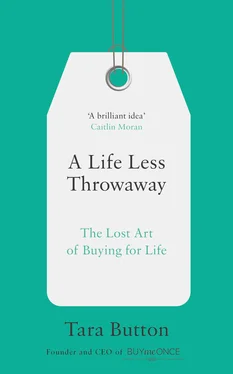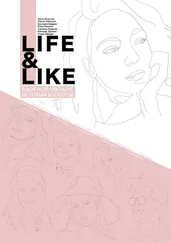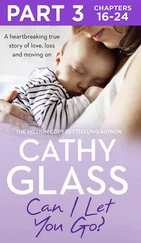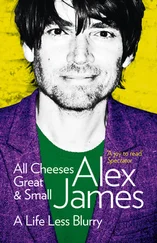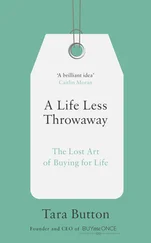‘I’m gay and I’m not offended, so how can you be?’ said my account manager.
‘Okay,’ I explained. ‘Imagine a 15-year-old gay person who’s anxious about coming out overhearing this conversation. They’d hear that a huge global company won’t have a gay couple in their ad because they’re worried sales of their product will go down. What kind of message does that kid get? That they’re not going to be accepted – that their mere existence can put people off their breakfast.’
The ad was eventually shelved, so the row never escalated, and a year later I managed to persuade the same client to put an interracial family into one of their ads. However, when I chose the actors, the client came back saying that they would not accept my casting because my choices were ‘too black’.
Feeling there must be some misunderstanding, I asked if there was any other reason why they didn’t like those actors. ‘No,’ came the reply. It was pure skin tone.
I tried everything I could think of, including threatening to quit, to persuade my bosses to insist on the hiring, but I was told, ‘We can’t afford to lose them as a client,’ and in the end, although my agency strongly voiced their objection to the stance, they gave in and the ad was recast with lighter-skinned people. It was this incident more than anything that spurred me to do something else with my life.
How can we who are horrified by the idea of prejudice counter these messages? The best defence I know against prejudice is empathy.
exercise
GENERATING EMPATHY
So much of the imagery we see, in ads and other areas of life, can divide us into ‘us and them’, ‘the haves and the have-nots’, and actively undermine our happiness by preventing us from connecting and empathising with others. In order to counteract this, here’s an exercise specifically to help you generate more empathy.
• Spend twenty minutes on the Humans of New York website ( www.humansofnewyork.com). There are stories there from people of every background and walk of life. Some are funny and some are deeply moving.
• Pick a person you wouldn’t normally meet. Look into their eyes.
• Now take a deep breath, close your eyes and try to imagine yourself in their skin, seeing the world as they do. Imagine going about your day as that person.
• Imagine meeting yourself as that person. How do you react? Do you ignore yourself, or do you engage? Can you find common ground?
I believe my experiences in advertising shine a light on why we need to question the messages that we see and I hope that through this questioning we can override the subconscious messaging from companies who may not share our values. Only this will leave us free to make our own choices.
SHOULD WE BAN ALL ADS?
Having read this far, you may be thinking, ‘If advertising is so bad, why not ban it?’ If we could click our fingers and get rid of it all, would we? I might be tempted, but no.
At its heart, all advertising is a mass sharing of information, and it doesn’t even have to be for commercial gain. It’s often useful in telling us about things we might not otherwise have known about and services that are available to us. Plus sometimes there are puppies involved, so it’s not all bad.
However, I am one of the growing number of people who believes we should have a choice over whether we see ads in our daily life or not. They do, as we found out in Chapter 1, harm us by triggering materialism. We can choose to forgo certain TV channels and publications to avoid certain ads. However, it’s impossible for us to avoid all the posters and billboards plastered all over cities and I feel they should be phased out.
This isn’t as far-fetched as it sounds. In 2016 a group raised funds to replace all of the ads in one London underground station with pictures of cats. So for one glorious week the residents of Clapham Common got tabbies instead of tablet adverts. 7And in São Paulo, Brazil, the city council has banned all outdoor advertising. Fifteen thousand billboards have been taken down, which has completely changed the identity of the city. It has brought architecture to the forefront and also highlighted some of the social inequality of the housing usually hidden behind the vast ads.
There are now channels, apps and publications offering you the choice to pay if you don’t want to see advertisements. This could be seen as a step forward, but there is the danger that it could force poorer people to watch ads while the rich can afford to avoid them. This idea was taken to its extreme in an episode of Black Mirror that showed a dark future where everyone lived in tiny cubes, their walls entirely made out of TV screens. 8Ads blazed at them all day long, but if they wanted to close their eyes and shut it out, they had to pay. If they ran out of credit, they were forced to keep their eyes open and lap it up … shudder.
Advertising, like anything that can influence a huge number of people, is a powerful thing. This power can be harnessed for the dark side, the light, or all the myriad of greys, beiges and bubble-gum pinks in between.
What I’ve started to campaign for is an advertising industry with a conscience. I’ve met many people in ad land who want to have a positive impact on the world, but think that they can only advertise what people pay them to promote. They believe that the ad industry can’t afford to have a conscience, but that doesn’t have to be true.
I’ve moved away from talking about the products that I don’t feel are beneficial to humanity and chosen to put my effort into brands that I do feel can help. If advertising agencies started to seek out game-changing ethical businesses and spread the word about them, these companies might disrupt more complacent and damaging big businesses.
The people who work in advertising might feel that they’re just cogs in the machine that is commerce, but cogs can spin in both directions. Maybe, if the advertising industry empowered itself to change, it could spin its cog the other way, and take the rest of commerce with it.
If you’re one of the millions of people who work in marketing, PR or advertising, get in touch. There’s a lot we can do.
Конец ознакомительного фрагмента.
Текст предоставлен ООО «ЛитРес».
Прочитайте эту книгу целиком, купив полную легальную версию на ЛитРес.
Безопасно оплатить книгу можно банковской картой Visa, MasterCard, Maestro, со счета мобильного телефона, с платежного терминала, в салоне МТС или Связной, через PayPal, WebMoney, Яндекс.Деньги, QIWI Кошелек, бонусными картами или другим удобным Вам способом.
